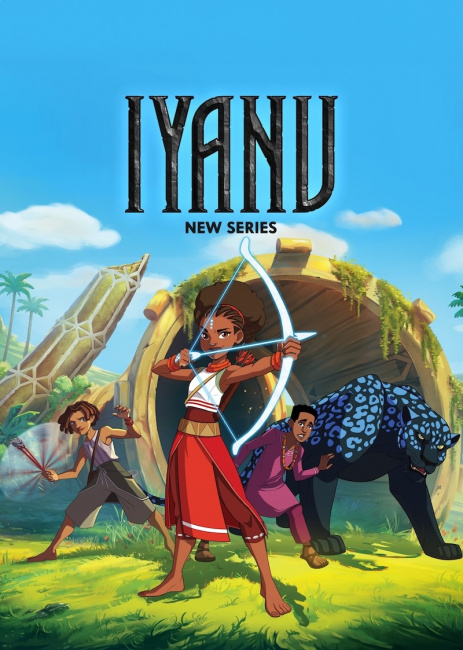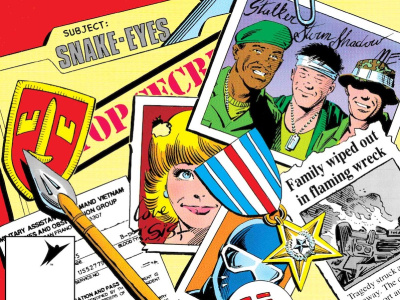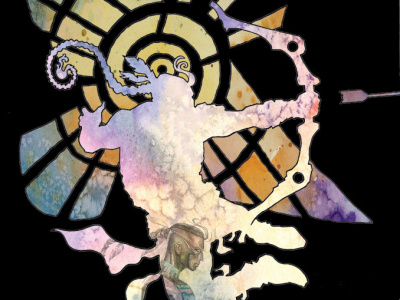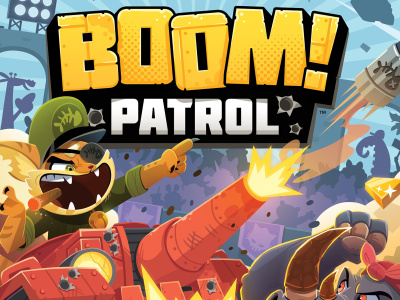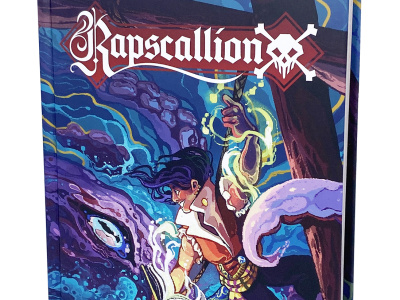The animated series Iyanu, which premiered on April 5 on Cartoon Network and is now streaming on MAX, is adapted from a graphic novel series by Nigerian creator Roye Okupe and is steeped in Nigerian lore, but it also has its roots in American comics.
Okupe, who is the executive producer and showrunner for the animated series, was born and raised in Nigeria but moved to the U.S. around 2001 (see “ICv2 Interview: Roye Okupe on YouNeek Studios”), and he is a longtime fan of Batman, Superman, the Teenage Mutant Ninja Turtles, Transformers, and other action franchises. “It is very satisfying to be at this moment where I'm able to take all the inspiration from the stuff that I experienced growing up and then integrate that with my culture and produce that for a show that's now going to be on Cartoon Network and MAX,” he said in a virtual press roundtable.
The show is based on Okupe’s graphic novel series Iyanu: Child of Wonder, published by Dark Horse Comics (see “YouNeek Studios Ties Up with Dark Horse”), and it is produced by Lion Forge Animation, a subsidiary of Polarity Ltd., the majority owner of the publisher Oni Lion Forge (see “‘Iyanu’ Series from Lion Forge”). The story follows an orphan girl who has divine powers but is forced to flee the walled city where she lives when her powers are discovered. Together with two friends and a magical leopard, she travels across Yorubaland to learn more about her powers, lift the ancient curse on her world, and escape a sinister enemy. Lion Forge won an Oscar for the short animated film Hair Love in 2021 (see “A Big Night”).
Okupe chose hand-drawn 2D animation as his medium, both because he’s a longtime fan of 2D animation and because he thinks it works best for the material. “When it's done right, I don't think there are a lot of better art forms than 2D animation, in terms of the way things end up being shown on screen,” he said. David Steward II, founder and CEO of Lion Forge Entertainment, agreed. “If you look at the graphic novels, you'll see a congruency there between what he did there from an artistic standpoint and what we what we were able to achieve with the show that I think could not have been done in a 3D medium,” he said.
Steward says the show is breaking new ground, especially because it’s on such big platforms, running alongside other successful shows. “Being able to showcase on this platform gives it the ultimate legitimacy,” Steward said, pointing to Cartoon Network’s “long, storied history of producing great content.”
Much of the voice and production staff is Nigerian, and Iyanu is also being shown in 44 African countries. Okupe and Steward both noted the importance of Africans and African Americans seeing themselves represented in a widely broadcast series. But Okupe also feels that Iyanu has a universal message.
“Iyanu is faced with a very difficult choice,” Okupe said, “especially for a 14 year old who gets powers that rival the gods of the land, and she has to decide whether she wants to use the powers for herself and for the betterment of just her and continue to think about herself, or she uses the powers to save everyone, and everyone includes the people that don't agree with her.” That includes the people who exiled her, he noted. “That, to me, is the mark of a true hero, being able to have empathy for everybody, not just the people that like you and love you or are close to you or your family. I think humanity, we're created for community, to be with one another, to help one another, to extend love to one another as well.”
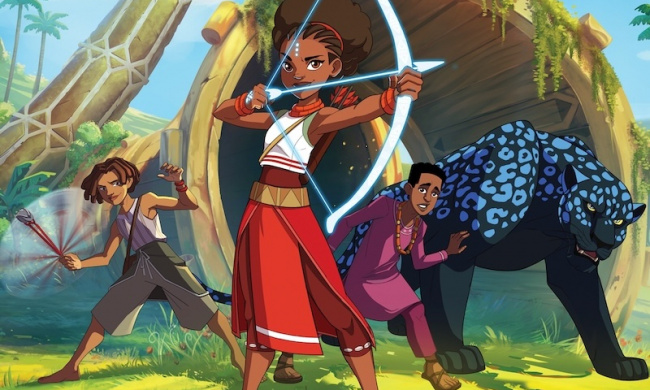
Based on Graphic Novel Series by Roye Okupe, Published by Dark Horse
Posted by Brigid Alverson on April 8, 2025 @ 10:08 am CT
MORE COMICS
'Hama Files Editions' Will Include a Letter from the Creator
August 11, 2025
Each issue of the Hama Files Editions will include a letter from Hama with background information about the comic.
From Marvel Comics
August 11, 2025
Spinning out of Deniz Camp and Juan Frigeri's Ultimates,Ultimate Hawkeye #1 by Taboo, B. Earl and Michael Sta. Maria hits stands next month.
MORE NEWS
New Tank Battle Board Game by Smirk & Dagger
August 11, 2025
Smirk & Dagger will release Boom Patrol, a new tank battle board game, into retail.
New Weird Swashbuckling RPG
August 11, 2025
Magpie Games will release Rapscallion, a new weird swashbuckling RPG, into retail.



